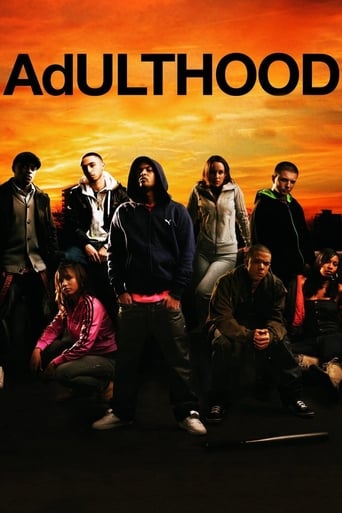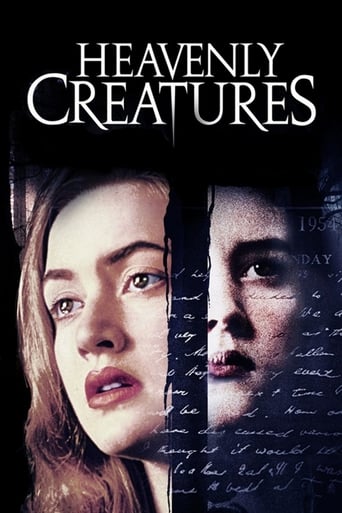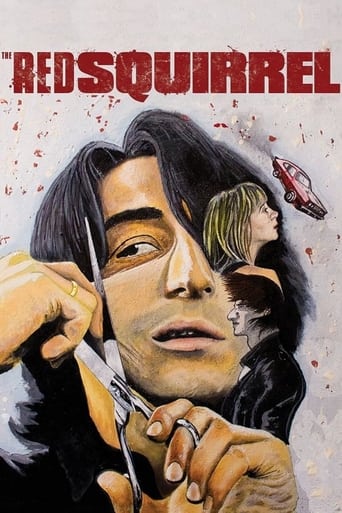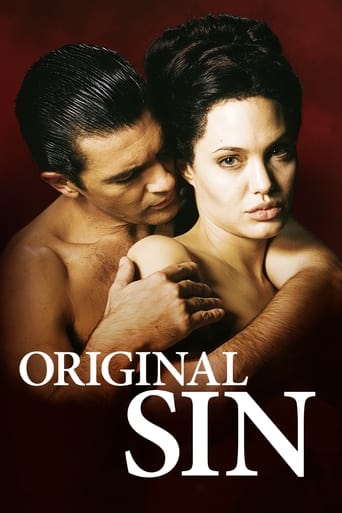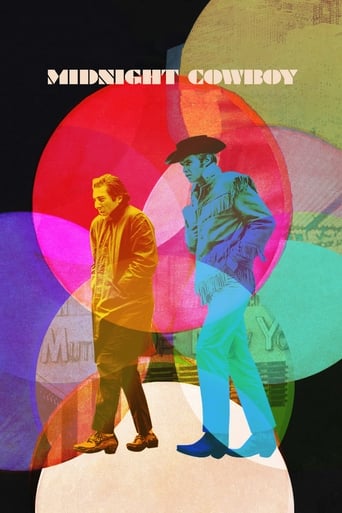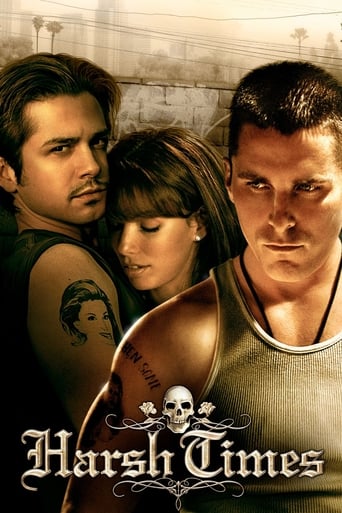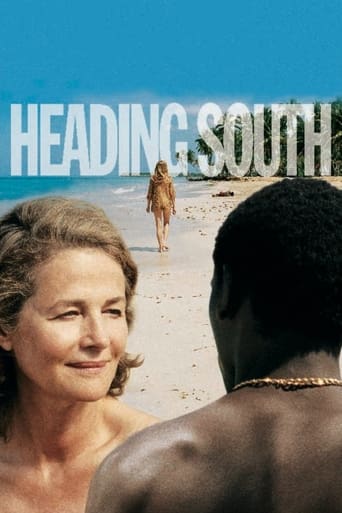
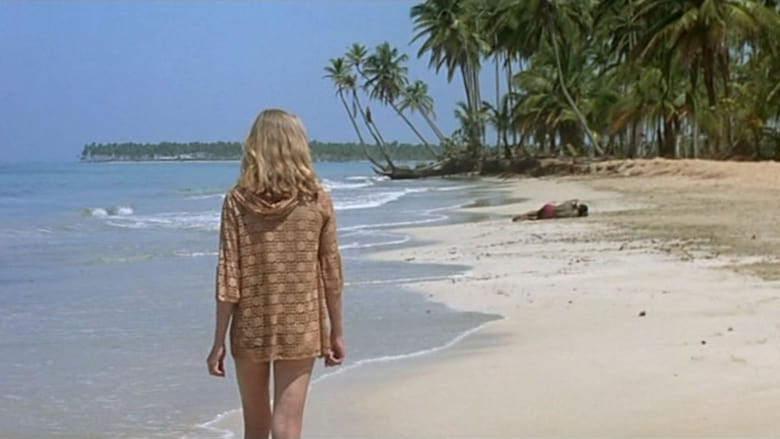
Heading South (2006)
A story of three female tourists who visit Haiti, in order to enjoy the sexual nature of the young men.
Watch Trailer
Cast


Similar titles
Reviews
If you like to be scared, if you like to laugh, and if you like to learn a thing or two at the movies, this absolutely cannot be missed.
The joyful confection is coated in a sparkly gloss, bright enough to gleam from the darkest, most cynical corners.
All of these films share one commonality, that being a kind of emotional center that humanizes a cast of monsters.
Through painfully honest and emotional moments, the movie becomes irresistibly relatable
The movie starts with a brave plot, but then the director does not know how to continue the story. Like most hypocrite viewers that cannot stand the idea of women having sex just for fun (like men do), on the second half of the movie he intends to be "politically correct" by giving a "happy ending" (to men) and a moral teaching (to woman), and to feel better with his own conscience, he finds a way to kill Mr. toy-boy (punishing him for being so "inmoral"). After this, and as opposed to the first half of the film, he shows woman as weak, sweet-hearted, and falling in love all the time, just like most naive men prefer to think about women. Also, to show himself sensible for the world we live in (another typical Hollywood cliché), he tries to condemn Haiti's political situation, but without risking to tell the actual real reasons why this country ended that way ("civilized" countries are mainly responsible). Good start, but a very disappointing ending ..
If the roles in terms of gender within Heading South had been reversed, there'd surely be some sort of mass outcry. The film might've veered away from the style and study it actually encompasses and turned into a lad-orientated picture about young men abroad, treating the respective nation like it was there own. Such is a way of pointing out the little things that would make a big difference in a film like Heading South; a picture that tells the story of white, middle-aged, western women in the Caribbean nation of Haiti looking for strapping, young men whom they pay for sex but additionally trying to find some sort of solace within themselves.As it is, I found Heading South to be a border-line success, but a success regardless. The film covers Ellen (Rampling); Brenda (Young) and Sue (Portal), three women who have made regular trips to the nation of Haiti over the years for certain reasons. For the benefit of the first-time audience member, who's seeing the film for the first time, their visits are established to be sporadic enough, allowing us to consider them minute fish-out-of-their-respective-waters and thus; we can enjoy the film as a first time visitor ourselves as this strange, new world complete with those that inhabit it is unfolded before our own eyes.What strikes me on some further reading is that the film was actually written by two men, one named Robin Campillo and the other being the director himself, a certain Laurent Cantet. The film was actually based on a series of short stories by Dany Laferrière. The film isn't really about sex tourism in Haiti, or any other nation, in fact it isn't really about sex tourism at all. The film does not attempt to explore what drives people to go to these places and nor does it treat the material in any sort of ominous or sordid manner. The idea to have the action set in Haiti is a very deliberate one; Haiti mostly being put across here as a lush, colourful and tropical place with beaches and sunshine creating a fluffy, lush atmosphere. The film may have been very different in tone and study had it taken its ideas and background to do with sex tourism and shifted everything to a rainy, cold and rundown Amsterdam or in the Far East. Maybe Thailand, for example.But do not think the film is a glorification of anything in particular. Haiti and the setting of a place sex tourism is rife is used as a bedded down, and very slow, isolated area for these women to just come together and interact following a supposed shunning back home. Nobody is going to travel thousands of miles just so that they can interact with people they could interact with at home, but these women do and it's done deliberately. It is a finding of peace in some regards; a small garden of Eden in which nothing else exists or matters on the outside and somewhere in which these women can feel important.The film begins with Brenda touching down and being transported to an idyllic haven in which quality food in good restaurants; nice hotels, warm weather and quaint beaches are the order of the day. This is all shared with other women of her age and predicament, whilst young; attractive black; male locals skirt around in not much bar swimming trunks. They are not allowed near the restaurant and do not say or do much unless requested to – it is not so far from some kind of Utopian, female supremacy-driven paradise; cut off from all apart from those lucky enough to know where it is and be able to frequent it. For a male to come up with this scenario and write short stories about it only for a further two to come along and produce a film out of it is quite interesting; significantly in a sense linked to do with including real life experiences; feelings; opinions or, indeed fantasies into your own written texts.In order to get to 'Eden' however, Brenda must be transported through the slums of Port-au-Prince, a very deliberate tactic by the director as the background to the 'real' Haiti is placed just the other side of a car window, Brenda keeping her head faced front for most of the journey – ever focused on where she'll soon be. With this idea comes the slight study Heading South wants to make. One such local male whom frequents the beach goes by the name of Legba (Cesar), played by an actor of no considerable note which leaves me thinking he was indeed a local. Legba attracts the fondness of more than one woman but runs foul of another local individual that sees them play out a chase sequence. The point being that, while these somewhat pompous Western women come to Haiti for 'escape' and a little slice of heaven, given the chance, some of the more accustomed Haitians would not mind getting out.But as I said earlier on, Haiti acts as a lush and appealing place. The hard-boiled and street-level gritty stuff works on a basic level, as does the idea that below the utopia is, in fact, a dystopia. We cannot be fed an hour of drawn out, beautiful locales and then be expected to suddenly slip into dank, depressive mode when in appears one of the beach boys is living a troubled life linked to crime; often gives his earnings to his struggling mother and those that sell drinks have their business trashed. The shift doesn't work. But Heading South does on the whole, and won me over by the end with its love story involving people we do not immediately come to identify with.
I really don't understand those who find this movie boring or disappointing. The main characters come across as very real. All had needs to be met. The three were able to meet those needs because they had the money to do it. They journey to Haiti as sex tourist seeking out young men to fulfill their desires for orgasms, love and affection. It's really no different than men who go places like Thailand and other such places where sex can be had for a few dollars by those who live in unimaginable poverty. The film also deals with the disdain that the people who live in Haiti have for the sex tourist.The film is well cast. Charlotte Rampling, Karen Young, and Louise Portal well portray the desperation for affection sought by them. Louise Portal as Legba and Lys Ambroise as Albert are excellent as the other side of this perverted fantasy.Highly recommended.
French writer-director Laurent Cantet creates films in which an intimate drama of well etched characters plays out within a broader subtext, a backdrop that focuses on some larger social issue. Heading South is about unattached white women of sufficient means to enjoy Caribbean vacations and indulge their sexual appetites with local men. This story is set against the misery of an impoverished underclass in early 1970s Port-au-Prince, Haiti.Charlotte Rampling plays Ellen, a college English teacher in Boston who's been coming to a particular beachfront hotel for years. She spends all summer. Unsentimental, lusty and outspoken, she pays for the attentions of Legba (Ménothy César) a lovely young lad of 18 who can make Ellen come when she merely thinks about him. She has no illusions about this arrangement, or so it seems for a while. She knows that Legba services many tourists like her, makes his living this way, probably supports his family as well. She's the ringleader of a circle of women, each with a favorite local gigolo in tow.Upsetting this idyllic arrangement, Brenda (Karen Young) arrives on the scene. She's the antithesis of Ellen, a mopey, sad sack of a woman, 10 years Ellen's junior but with none of the older woman's appeal. Brenda's a terminal romantic and entirely self-centered. She had in fact seduced Legba three years earlier, when he was 15, has thought of him daily since then, and, following a divorce, is now returning to find and take up with him again. She's in love.Brenda boldly lays claim to Legba, who tries to service her on the side while still maintaining his connection to Ellen. No way. Initially amused by Brenda's earnestness, Ellen gradually reveals that she is not as tough as she would have people believe. She is deeply hurt and angry in fact when Legba rejects her to spend more time exclusively with Brenda.Legba is playing his own game. He's not in love with Brenda. But she is giving him plenty of gifts. If anything, he toys with her sober infatuation, perhaps finds it a refreshing change of pace from Ellen's frankness and mock insults. But Brenda isn't playing by the rules. This throws everybody off and ratchets up tensions.We begin to see into Legba's his town life, where the picture is far from rosy. A destitute mother. An old girlfriend who has become the mistress of a wealthy gangster but begs for Legba's company. We see him interrupt a street soccer match to rescue his young sidekick Eddy from possible arrest or worse by a cop who drinks a pop from the boy's sidewalk stand without paying, and kicks over the stand when Eddy protests.Ellen learns that Legba is in trouble, hunted by a gunman who works for the gangster. She begs him to let her help, to protect him, even to go to Boston with her to live, but he won't hear of it. We can see that she cares for his welfare in a genuine sense. But the gulf between them, which Ellen had lulled herself into ignoring, is ever present to Legma.We receive a fuller, more insightful picture of Haitian sensibilities toward whites from Albert (Lys Ambroise), the chief factotum of management at the hotel. We get Albert's take through a long aside, a soliloquy spoken into the camera, directly to us. Ellen, Brenda and Sue take their turns giving us information on their backgrounds and sentiments in using the same dramatic device. Always a perilous film tactic, it works well here. Albert's contempt for the white overclass runs deep, a passion that had been passed down from his grandparents.He speaks of the power of American money over the poor local population. Where the French stole their independence, and the Duvaliers stole their worldly goods, the Americans are stealing their dignity, and right under Albert's nose. As he sees it, the young native men hustling tourist women, trading sex for money and baubles, are degrading themselves, but feel forced to do so to make a living.For his part, Legba is also deeply sensitive to these circumstances. He has little trouble recognizing Brenda as his original seducer, and is enraged when he sees her dirty dancing with young Eddy on the beach. It isn't at all clear that any of the women, not Brenda, not even Ellen, can fathom the broader context and harsher ironies underlying their connections with their boyfriends. Ellen says she has no interest in going into town, that it's a bore. We can surmise that Legba would much prefer to live his life among his own people and no longer prostitute himself. Ellen's notion of how best to help him is, for all her seeming savvy, naive.We can hope that the screenplay is authentic, for it is based on three short stories by the native Haitian novelist Dany Laferrière, who was born in 1953 in Port-au-Prince. He was a late teenager himself in the years when this script is set. He abruptly left Haiti in 1976, fearing for his life, and has lived in Montreal since (spending some time in Miami as well).Cantet never insults the viewer's intelligence by dispensing sociologic wisdom or overreaching with his chosen conceits. The characters play out their lives on vividly realistic terms. By the end some people have died, and the principal women have exchanged psychological places. Ellen, now bereft and vulnerable, goes home to Boston and, presumably, a life of embitterment. In the final scene we see a refreshed Brenda, journeying off to tour more islands, bound for new adventures, now acting the sexual predator, but dragging her wrecking ball behind her. Filmed on location in Haiti. (In French & English) My grades: 8.5/10 (A-) (Seen on 09/21/06)





